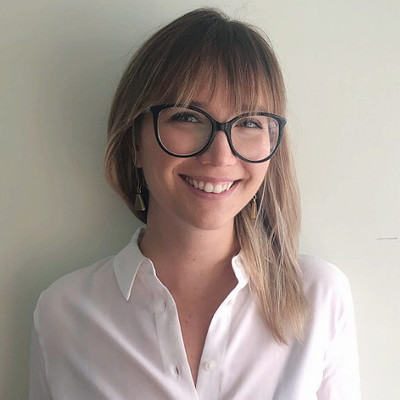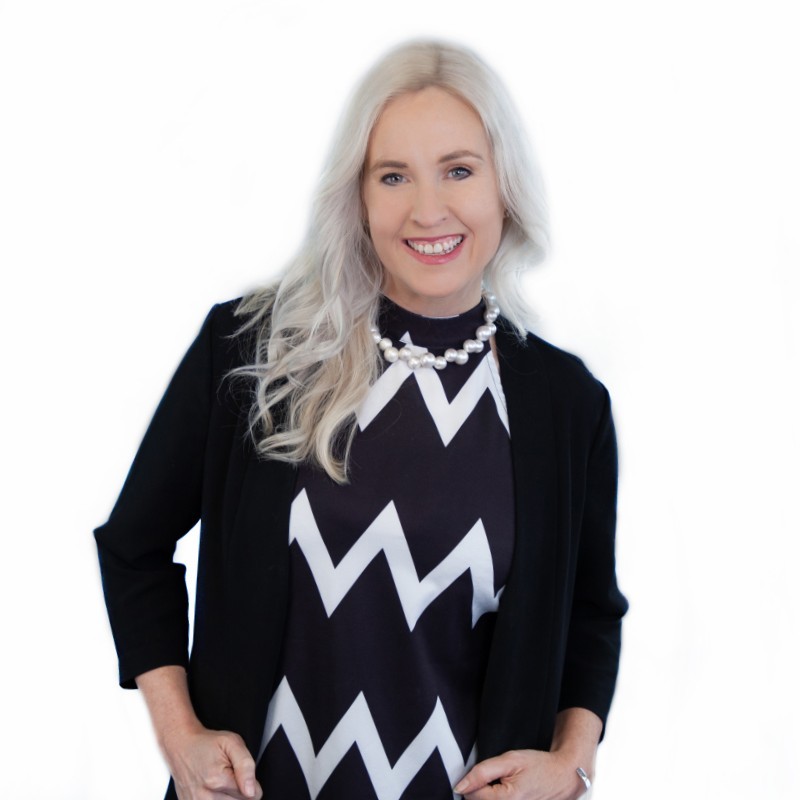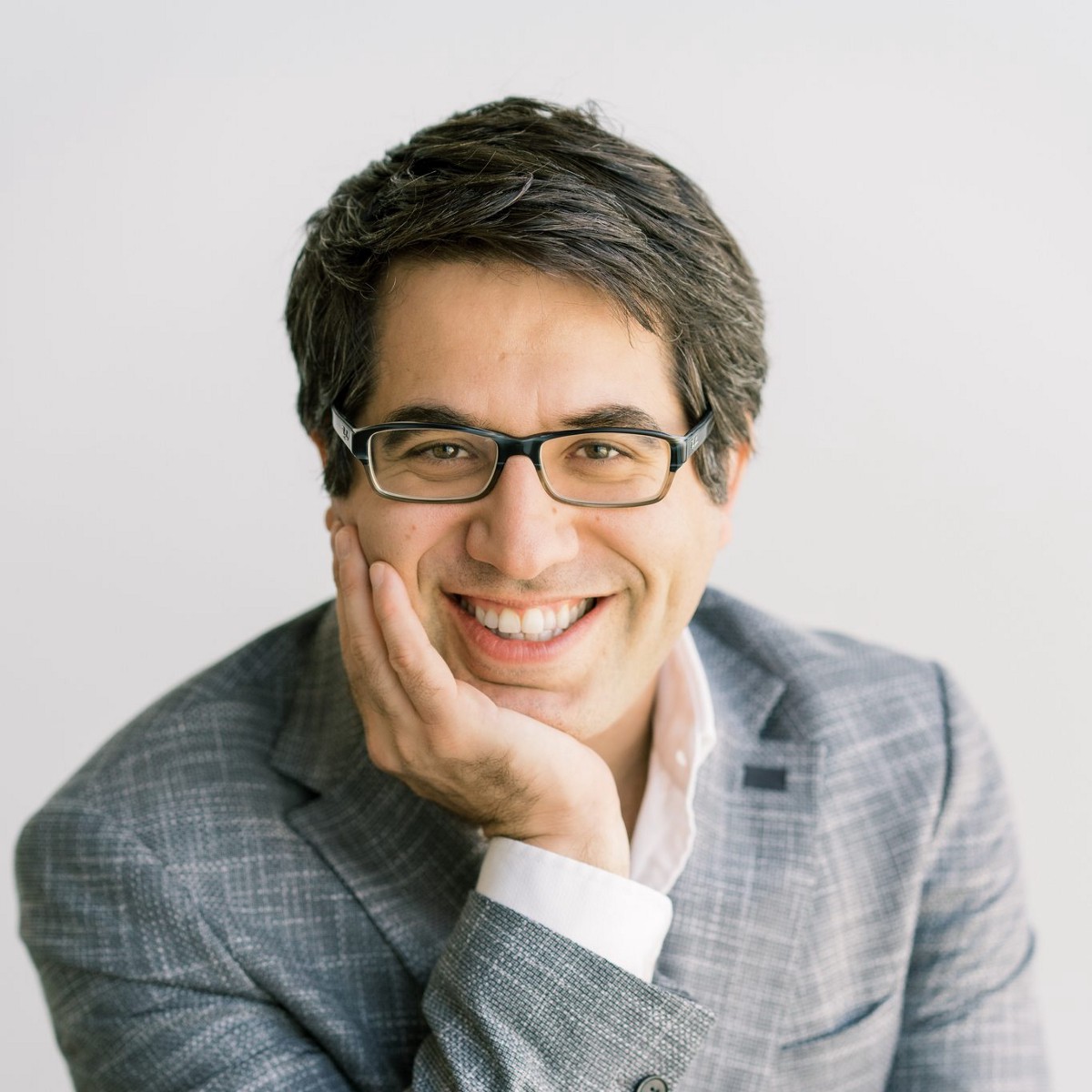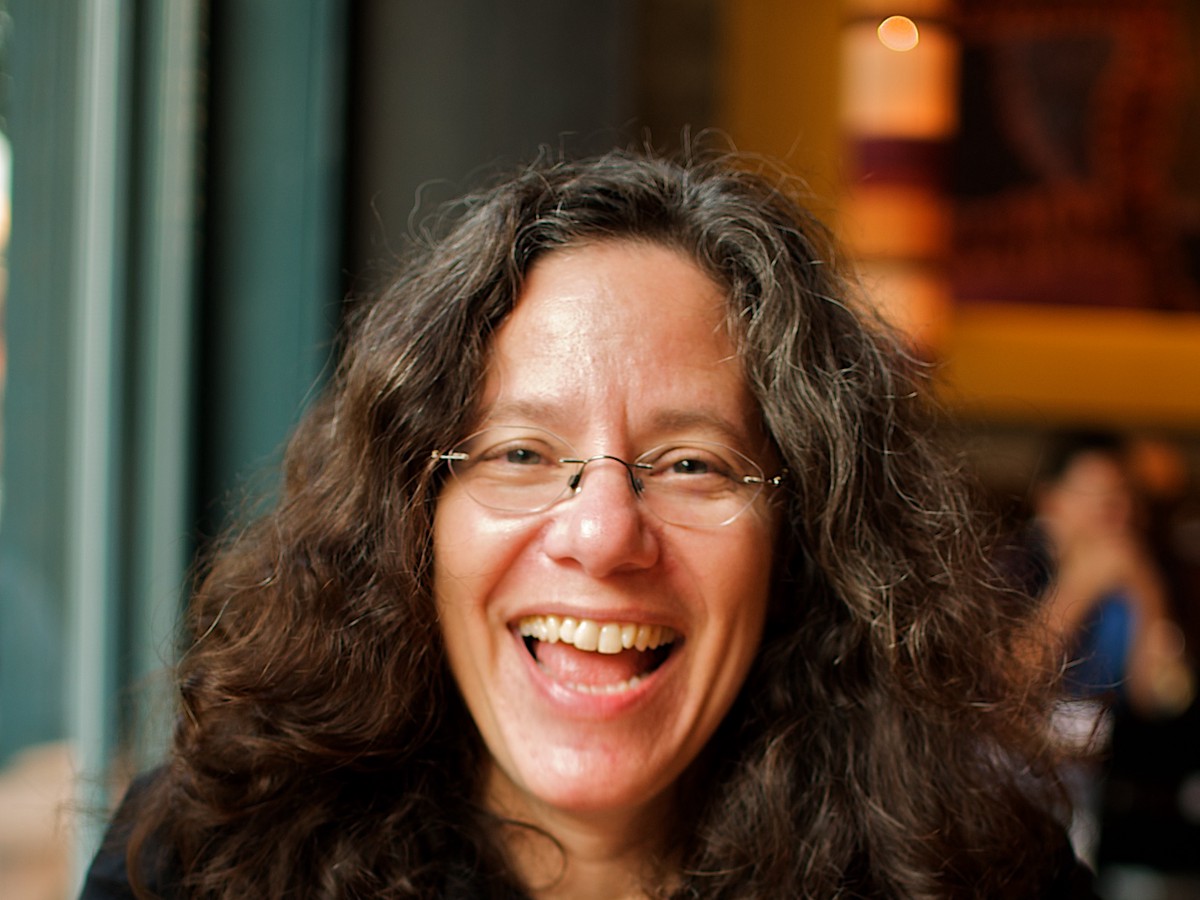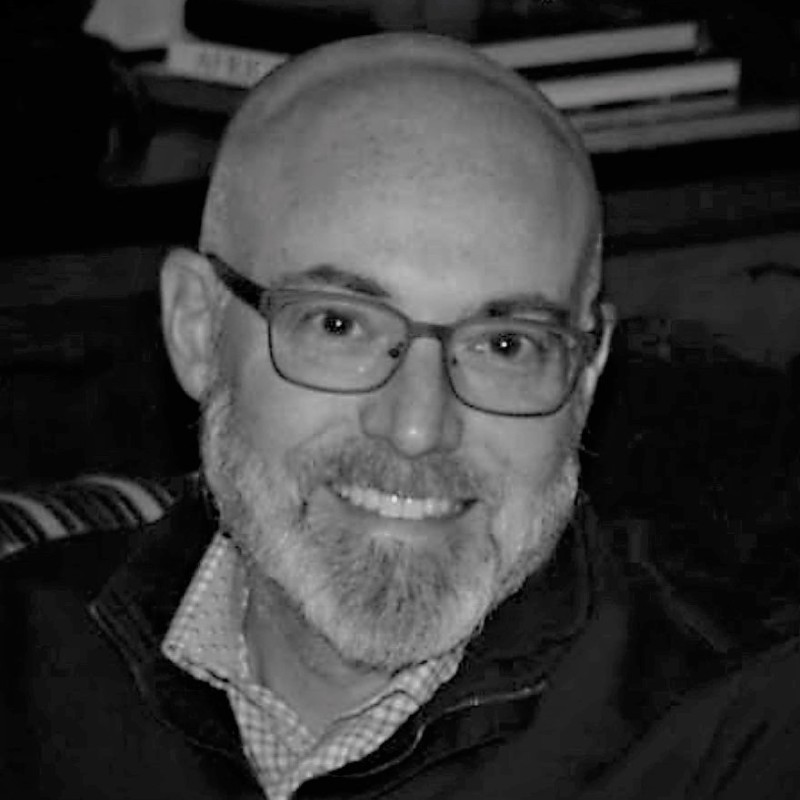Corporate Social Responsibility is something most companies add as an afterthought, when they have reached maturity in all other functions. But, not Fiix. Even when they were 20 employees strong, they brought in Katie Allen, dedicated to this cause. She shares how the company navigated challenges like employee pushback and what it takes to become B Corp certified.
What we learned from this Epsiode
-B corp is the third party certification for companies that meet high standards of ethics, transparency, positive and social environmental impact.
-“B corps is a wedge into a wider community of Corporate Social Responsibility, sustainability, and social justice in general. It provides the starting point, but it’s not going to define every single thing that we do.”
-The B corp community is actually quite large and active. It’s a way to interact and network with some of the most forward thinking companies on the planet.
What you can do right now
-Have a purpose, as a company, outside of your mission that you actively pursue. Embed that belief into your organization’s culture.
-If you are going to do B Corps, make sure you have a project manager who can see it through.
Key Quotes
“There is often an argument between what’s good for the economy and what’s good for the environment, but in reality, the two work together synonymously, and you can achieve better outcomes if you just work together.”
“I think there’s so much potential and so much opportunity. And every business has the opportunity to do better and pursue that purpose.”
“You can use business as a force for good because they have the power, the resources, and the flexibility to tackle some of the world’s greatest challenges.”
Links
Today, our guest is Katie Allen. She’s the CSR manager for Fiix Software. And today, we’re talking about B corps and lots of other things. Hi, Katie. How are you?
Hey, good. Thanks for having me.
Very excited to have you on. I got in touch with you because I was doing some research about B corps and trying to figure out more about what it is but I want you to introduce more of yourself and your company Fiix.
Yeah, for sure. So, I do the unique role of Corporate Social Responsibility. And I was hired back in 2016, Fiix, which was then known as maintenance assistant at the time, and we were about 20 employees strong. And bringing in Corporate Social Responsibility was an interesting endeavor at the time because there was no sales department, there was no HR department, but we had Corporate Social Responsibility.
Yeah, that’s good. You think of CSR as something like, okay, once we get to maybe like 100 people, we should have one person doing that, but at 20, that’s crazy.
So, it was introduced very early. And now we rebranded to Fiix, and we’re almost 200 employees, and it’s been almost four years.
So, how did you personally get involved in this? Is this your dream job? Was this something you were looking forward to do for a long time?
Yeah, I actually studied environmental science and economics. So, I found that there was often an argument between what’s good for the economy and what’s good for the environment, but in reality, the two work together synonymously, and you can achieve better outcomes if you just work together. And that’s what led to Corporate Social Responsibility because it’s the idea that you can use the business to do better things and have a positive social and environmental impact.
Now, what was the culture of the company like when you joined? Because I’m thinking if they’re bringing in a CSR person at person number 20, that everyone’s like spending all their volunteer time and the whole focus is about social responsibility. But what was it like for you?
It was different than it is now. And that’s because it was a startup culture. And it’s your typical high growth tech company. And there was one other woman on the team. So, it was me, one other person, and it was quiet, there wasn’t much going on. And people just came in and out of work every day, and didn’t really think too much about how they were having an impact on the community or how the business could achieve better outcomes if we put some focus and energy into it.
So, what brought them to hire you then?
It was all founder-lead. The attitude was that you can use business as a force for good because they have the power, the resources, and the flexibility to tackle some of the world’s greatest challenges. So, the attitude was that we need to bring someone on to do that, essentially.
Well, let’s talk a little bit towards this path towards B corp certification. So, give us an introduction to what is B corp.
B corp is the third party certification for companies that meet high standards of ethics, transparency, positive and social environmental impact. And it is like an organic certification for a product but applied to the entire company. So, it provides validation for companies that are doing good.
And were you aware of it before you got involved with Fiix?
I was and I brought the idea forward and the leadership team loved the concept because it’s a way to quantify social and environmental impact, which is something that’s quite difficult to do. So, if you’re able to see a number put next to good things that you’re doing, they really liked that idea.
So, walk us through the path because taking someone to the idea of it and then actually getting certified is a long process, right?
Yeah, it certainly was. And what I liked about B Corp, and what they liked, too, is that it provided a path forward. So, we could see what the ideal outcome and scenario would look like and where we are now relative to that final outcome. So, we had to introduce a number of things starting from scratch. We, of course, had to introduce different policies, different programs, different initiatives, a strategy of framework, and all of those things kind of lead into the B corp certification.
What were some of the things that were pretty easy for you and your current culture to do and what were some of the things that were more challenging?
Yeah, it was easier at the time because we were small. And in a startup culture, it’s a lot easier to just do things. There’s no real bureaucracy. It’s flexible. And so, we were able to introduce a lot of policies and programs right off the hop. But now that we have to recertify every three years, it’s become more challenging as we have to assess, how is this going to impact every person at the company, the different teams, the culture, and the business as a whole. So, at the beginning, it was quite “easy”. And now it’s become a bit more challenging to make those changes that we need to.
Has B corp become a type of day to day or strategic filter that you use to make decisions?
It is in a way, for sure, because it does provide that path, like I mentioned, but it’s not the be all and end all. The way I described B corp is it’s a wedge into a wider community of Corporate Social Responsibility, sustainability, and social justice in general. So, it provides the starting point, but it’s not going to define every single thing that we do.
Let’s talk about this idea of a wedge more and how it opens up things. So, what were some things you personally, and as a company, became more aware of because of B corp certification?
Yeah, that’s an interesting question because Corporate Social Responsibility looks so different at every company. And recently, there were 100, the business roundtable comprised of 181 CEOs. They changed the purpose of a corporation to serve not just shareholders, but to serve all stakeholders as well, which includes the environment. And so, what all of those companies are doing is actually completely different. You might have one company that’s working towards 100% renewable energy, while you have another company that is investing in technology that will help decrease the impact of their supply chain. There’s also initiatives like Pledge 1% so that you can pledge 1% of your time, 1% of your revenue, 1% of your product. There is a global reporting initiative and there’s environmental governance, and social accounting methods. The list really goes on, but it’s interesting because how it applies to your people, your business is going to look quite different. So, B corp helped us find those different companies and see which pieces really fit with us at Fiix.
What’s something that surprised you once you were a part of the B corp community?
Yeah, I think what I didn’t realize going in was how big of a community it actually is. And I thought it was going to be a certification process, wipe your hands off, it’s done, continue on your way. But what they did was they provided an online community as well as an in person community and the opportunity to gather every single year. And so, it was far more in depth than I had initially realized. And that has really been the value proposition for B corp I find because you’re able to network with some of the most forward thinking companies and learn all of their best practices. So, for example, if I came to a B corp breakfast, which we do once a month, I might ask the question to the group, how do you measure social and environmental impact within the employee performance review? And that’s when we’ll talk about it and see what other companies have done and what their experience has been in the process. Whereas any other standard networking events, they might not have even thought about those questions or come up with the answers.
Let’s talk about the percent of revenue that you attributed to CSR. So, you have a certain number that’s there for Fiix. How did you come up with that number? And how do you use that in your work?
We wanted to develop the business case for CSR early on because we wanted our corporate social responsibility program to be normal and every day. This is what every business does because we know that this is the right thing to do, but also the right thing for business. So, we surveyed our customers, and we do this now on an annual basis. We asked them, how much do you value a socially responsible company, and 70% said that they believe companies should engage in social and environmental initiatives, as well as generating a profit. And of those people, 16% said that our Corporate Social Responsibility program influenced their decision to purchase our product. So, we were able to take that number and then translate it into annual recurring revenue. So, we found that that translated to 6% of our overall generation.
Do you find that there are certain aspects of your particular adoption of B corp that resonate with your customers specifically?
You know what? We didn’t actually ask them anything specific to B corp. All of our Corporate Social Responsibility can be tied to B corp because it’s the measurement tool for that. What we did ask them was the UN Sustainable Development Goals. So, that’s another International Development Framework, the UN Sustainable Development Goals. There’s 17 of them, and they tackle environmental, social, and economic issues globally. So, we took all of those and we asked our customers, which ones do you value the most and which ones do you care about. And so, what we found was they cared about education, they cared about decent work and economic growth, and they also care about life on land, ecosystems, things like that.
Let’s talk to somebody who’s a leader at a smaller company that wants to pursue this. I see two methods. One is to do the method your company’s done, which is to hire somebody to really say, “Hey, will you spearhead this? Will you lead this? Will you help us to get to this level?” And the other is to say, “Hey, no, it’s going to be everyone’s responsibility. We all have to be committed to this and we’ll do this as a team.” What do you feel like are the tradeoffs of both responses?
My first reaction would be that ownership is key. You need to have somebody that is dedicated to it. But while saying that at the same time, it’s a team effort. So, if I were to reframe it, I would actually say you need a project manager for B corp. It’s so extensive. There’s so many questions. And it takes a lot of information. And that information is contained within multiple people on your team. And that means that everyone is technically responsible, but someone needs to manage all of that information and ensure that not only is it being organized in the right manner, but that you’re able to improve upon all of those different metrics. So, small business, you might not have the capacity to hire someone full time. Although, our example might have changed that idea, it’s definitely possible. It may not seem that way. So, if it’s owned by everyone, I think that you would still have better outcomes than if you didn’t have anyone do it at all. But the best foot forward is to have someone who owns the entire thing and ensures that all of the information is captured.
While you were going through the B corp certification process, were there certain parts that you got more pushback from from the rest of the company?
Yeah, some things are worth more points than others. And so, it’s dependent upon how difficult it might be to implement. And so, the ones that are worth a ton of points are going to get a little more pushback than the things that would be super easy. So, for example, it might be easy to introduce a wellness program that you can bring in, like a yoga instructor every week or something to that effect, that will easily get you points and something that we can manage. But when it’s asking you to change your articles of amendment to reflect people, planet and profit, that’s when you have to consider how that’s going to impact the business in a greater way. So, the pushback would really come from the things that are going to impact the business in a more significant way, whether it’s policies or whether it’s changing the articles of amendment.
Tell us more about the points because I think this is the first time we’ve talked about it. How does the point system work within B corps?
So, it’s divided into five different impact areas. There’s governance, workers, community, environment, and finally customers. So, within those five areas, it will divide the points accordingly. Now, depending what your company type is, and the industry that you’re in, the questions will differ, and therefore the points will differ. So, as a technology company, our assessment will look vastly different from a food and beverage company. So, there might be a lot of points within the customers area for food and beverage because they have supply chain impacts. But for a technology company that’s based in the cloud, there aren’t going to be as many questions and therefore there won’t be as many points available.
And so, then you have to get to a certain threshold to receive the certification?
There’s 200 points available, and you need at least 80 in order to pass the assessment. So, some of the top scoring companies, for example, Patagonia, I think they’re at maybe 147, maybe 150. And I think that speaks to how difficult it is to get perfect.
Yeah. And you are in the middle of a process of recertification, right?
Yeah. So, when we first did our assessment, we just passed, we got 81 points. And so, for our second assessment, we’re aiming to get 100 plus.
Good. And so, can you give us some things you’re doing right now that are in your project pipeline?
Yeah. The one thing that we’re really working on is how to incorporate social and environmental impact into the performance review for employees. So, that one has been quite difficult and something we are continually working on. The other part actually is our customer impact. So, this is where we hadn’t received many points in the past. And that’s because our product impact is hard to quantify. So, we make maintenance management software. So, that means that we help our customers track, schedule, and organize maintenance activities. This could be a manufacturing facility, it could be an oil and gas company, it could be wind power, it could be a church, it really differs quite a bit because everybody needs maintenance. And we know logically, through good maintenance, you’re going to have better health and safety outcomes because things are working properly. You’re going to produce less waste because you’re extending the lifespan of your assets. And it’s going to decrease your energy consumption because things are running the way they should be and aren’t consuming more than they need to. And so, that’s something that we haven’t quantified through our product in the past and something that we are now actively working on to try and measure which will hopefully get us more points in B corp in the long term.
Yeah. And do you find that the points are really just a gateway into thinking broadly about things? Because the B corp standards will change throughout time, things will shift, but how do you maintain that focus on becoming a better company and not just getting more points?
That’s really where leadership comes into play. And if you don’t have a purpose as a company outside of your mission, and something that you’re actively pursuing, then B corp is just going to remain points, right? It’s not going to embed itself in the culture. Employees aren’t going to believe it, and neither are your customers. So, in order to get the most value out of it, you need to have every single person on board and that especially means leadership, and even more importantly, the Board of Directors.
Excellent. Well, Katie, I’m going to close with a couple questions here. First, we title each of our episodes Work Minus something to say what we’re trying to get rid of in the past to help us move towards a better future of work. I really feel like becoming B corp certified is a great step forward and saying let’s become better companies. But what do you think we’re leaving behind to get there?
I think we’re leaving behind Business As Usual. We need to achieve our purpose at work, whether it’s personally or whether it’s at a corporate level. What is the bigger picture here?
Yeah. Because Business As Usual just means, like you said, it’s about shareholders. It’s about maximize the profits and whatever kind of scorched earth we leave behind us is collateral damage. It’s okay. Just because it’s there, right?
Yeah, exactly. I think there’s so much potential and so much opportunity. And every business has the opportunity to do better and pursue that purpose.
Great. And then last question is about our captcha test segment that we’re doing. So, becoming a better company is about treating people like humans, expecting them to step up and not just work like a machine. So, what’s one test you would give to somebody to test if they were human or if you’re around your team?
I love the question, what’s your personal purpose in life? What’s something that fulfills you every single day? Because people don’t just go to work to make money. Yes, that’s an outcome of what you do. But there’s more to it than that. And I think that that really dives deep into who person is, what is your purpose?
Excellent. I like that a lot. The purpose behind something because if you’re talking to something that’s just machine oriented, just system oriented, the purpose is just to do the thing that’s there. But for humans especially, purpose talks to some higher calling, something that’s beyond what we can quantify, which I think is in the spirit of B corp as well. That sounds great.
For sure. Yeah. Answer your why.
Nice. Well, Katie, thanks so much for being on the show. It’s been great talking with you. Thanks for sharing your experience and letting us into this process.
It’s been a pleasure. Thanks for having me.
Katie Allen pioneered corporate social responsibility at Fiix, certifying them as a carbon neutral B Corporation and developing a business case for the triple bottom line by showing that 6% of their annually recurring revenue can be attributed to Fiix’s CSR program. She has effectively engaged the workforce with a reported 8.4/10 engagement rate and 84% participation in volunteer events and ensures employee sustainability literacy through mandatory sustainability training, resulting in an increase in their waste diversion rate from 41% in 2017 to 84% in 2018.
